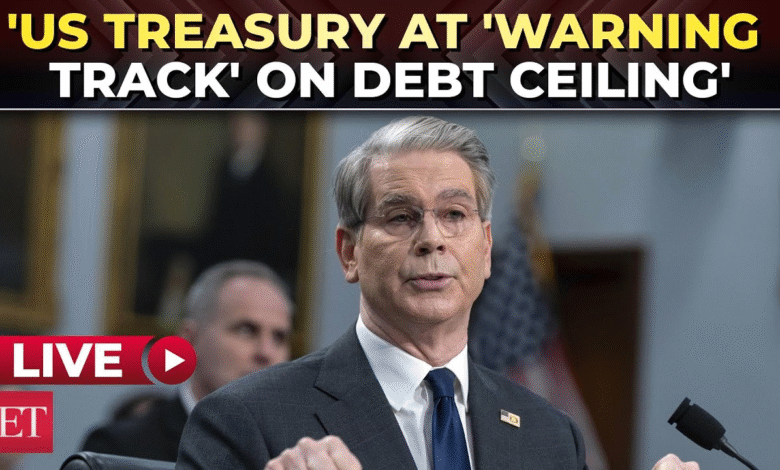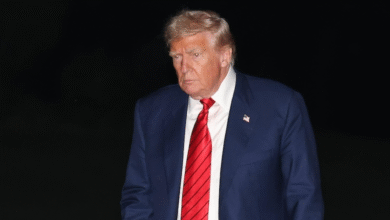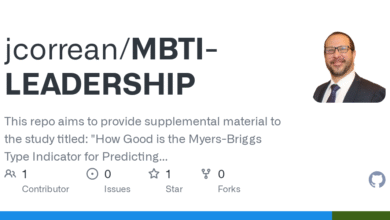Debt Ceiling Urgency: Congress Must Act Before August

The debt ceiling has become a critical topic of discussion as Treasury Secretary Scott Bessent recently warned congressional leaders that the United States could soon hit its borrowing limit. In a letter dated May 9, he emphasized the urgent need for Congress to increase the debt ceiling before their August recess to avoid dire economic consequences. The potential failure to raise this debt limit could lead to significant repercussions for the nation’s financial stability, affecting everything from government operations to global markets. Bessent highlighted that based on current financial data, the government might run out of cash as early as August, raising alarm bells about the economic impact of the debt ceiling. As policymakers grapple with this issue, understanding the implications of a debt ceiling increase remains paramount to preserving the nation’s fiscal integrity and creditworthiness.
As the United States navigates its financial landscape, the concept of borrowing limits—or debt ceilings—has come to the forefront of economic policy debates. With the government’s capacity to fund its obligations on the line, discussions about congressional debt limits and necessary adjustments are heating up. Treasury officials are racing against the clock to ensure that action is taken before potential default scenarios arise, which could interrupt vital government services and shake market confidence. The looming deadlines, coupled with varying opinions in Congress, create an environment ripe for discussion about the future of fiscal policy and national security endeavors. Understanding these dynamics is essential as stakeholders consider the ramifications of governmental borrowing decisions.
Understanding the Debt Ceiling and Its Importance
The debt ceiling, essentially a cap set by Congress on the amount of money the federal government is allowed to borrow, is crucial for maintaining the financial health of the nation. When the ceiling is reached, the government can no longer issue additional Treasury bonds or borrow money, which can lead to severe economic repercussions. Recent inquiries by Treasury Secretary Scott Bessent have highlighted the urgency for Congress to consider a debt ceiling increase. Without this increase, the government risks defaulting on its obligations, which could undermine the country’s financial stability and erode investor confidence.
An increase in the debt ceiling is essential not only to fund existing commitments but also to support future economic growth. By allowing the government to meet its obligations, including social security payments, military salaries, and interest on the national debt, the cash flow ensures the continuity of vital government operations. Furthermore, the economic impact of the debt ceiling stretches beyond immediate financial obligations; it affects fiscal policies, public investments, and can influence the credit rating of the United States, shaping global perceptions of economic reliability.
The Impending Economic Consequences of Ignoring the Debt Ceiling
If Congress fails to act on raising the debt ceiling, the U.S. may face dire economic consequences. As highlighted by Secretary Bessent’s letter, this scenario poses a threat to the financial system and America’s global leadership position. A default could cause immediate disruptions in financial markets, increase borrowing costs, and lead to a significant decline in economic growth. The uncertainty surrounding the debt ceiling creates instability, prompting investors to reconsider their holdings in U.S. debt, which has historically been viewed as a safe investment.
Moreover, the potential fallout extends to everyday Americans, affecting their savings, retirement funds, and access to credit. The risk of a government shutdown or suspension of services due to a failure to raise the debt limit would create a ripple effect across various sectors, hampering economic activity. This could exacerbate issues like rising unemployment and limited access to capital for small businesses, further emphasizing the importance of timely action by Congress to suspend or increase the debt limit.
Scott Bessent’s Appeal to Congress: A Call to Action
In his recent communications, Treasury Secretary Scott Bessent articulated a clear urgency for Congress to make a decision regarding the debt limit. The deadline looms with the August recess approaching, and the recommendation to raise the debt ceiling by July is due to the expected depletion of available financial resources. Bessent’s appeal is not just political; it’s a safeguard aimed at ensuring the U.S. maintains its financial commitments and upholds the trust of its creditors. His letter serves as a crucial reminder of the responsibilities lawmakers hold in promoting economic stability.
Bessent’s insights focus on the need for bipartisan collaboration to address the debt ceiling, suggesting that failing to act could lead to severe constraints on fiscal flexibility. As Republicans propose substantial increases to the debt limit, their approach must navigate party lines and cross-party discussions. The deadline adds pressure, making it essential for both parties to come together, not only to fulfill current obligations but also to foster a conducive environment for future economic growth.
The Legislative Landscape Surrounding the Debt Ceiling
Navigating the legislative landscape of the debt ceiling involves balancing complex political dynamics. Currently, Republicans control both houses but face challenges arising from narrow majorities and differing priorities within the party. Any proposed increase of $4 trillion to $5 trillion signifies not only a financial maneuver but also a strong political statement aligned with President Trump’s agenda. However, the path to consensus remains fraught with hurdles, emphasizing the necessity for thoughtful negotiations and compromise.
Understanding Congress’s debt limit discussions also requires acknowledging the broader economic context. As lawmakers weigh the implications of their decisions, they must consider the potential repercussions on the national debt, interest rates, and economic growth. The looming deadline sparks urgency in the political arena, reinforcing that the outcome of these negotiations is critical, not just for fiscal policy but for maintaining the economic strength and resilience of the United States.
Implications of a Default and Economic Disruptions
The potential implications of a default on U.S. debt are severe and multifaceted. Should Congress fail to initiate a debt ceiling increase, it could result in defaulting on government obligations, leading to economic disruptions that can shake investor confidence. This lack of trust often manifests in immediate increases in interest rates, which would further escalate borrowing costs for consumers and businesses alike. Consequently, such financial instability could culminate in a significant downturn, negatively impacting job markets and consumer spending.
Furthermore, the economic repercussions of a default would not just be felt domestically; the global economy could also suffer from America’s inability to meet its debt obligations. Countries and investors around the world hold U.S. Treasury bonds as security in times of economic uncertainty. A default would therefore undermine the credibility of U.S. financial instruments, altering the dynamics of international trade and investment. This scenario underscores the critical need for political leaders to prioritize solutions to elevate the debt ceiling and restore stability.
The Role of Public Opinion in Debt Ceiling Decisions
Public opinion plays a significant role in shaping the approach Congress takes regarding the debt ceiling. As voters become increasingly aware of the potential economic fallout that could arise from failing to raise the debt limit, there is growing pressure on lawmakers to act decisively. The ramifications of not addressing this financial obligation resonate throughout society, prompting active discussions among constituents and advocacy groups advocating for fiscal responsibility.
Additionally, the media’s coverage of the debt ceiling debates and the consequences of inaction can significantly influence public perceptions. With economic stability being a top priority for many Americans, understanding the nuances of the debt ceiling debates becomes vital for informed voting behavior. Ultimately, public opinion can sway politicians toward a more collaborative approach, emphasizing the need for bipartisan solutions against the backdrop of a challenging fiscal landscape.
Historical Context of the Debt Ceiling in America
The history of the debt ceiling in America reflects critical moments of negotiation and tension between fiscal responsibility and political agendas. Established in the early 20th century, the debt ceiling has undergone numerous increases and changes, often coinciding with major fiscal crises or economic downturns. Understanding this historical context is essential to grasp the urgency of current debates surrounding a debt ceiling increase and the ramifications of political stalemates. The cyclical nature of these discussions reveals a consistent pattern of brinkmanship in Congress, bringing both challenges and opportunities for reform.
Moreover, examining past instances where legislation was passed to raise the debt ceiling can shed light on the best practices and pitfalls faced by lawmakers. These historical examples underscore the balancing act that occurs as policymakers seek solutions to avoid potential defaults while adhering to their partisan principles. Reflecting on the implications of past decisions can provide invaluable insights for today’s Congress as they grapple with similar issues, reinforcing the need for cooperative governance.
The Future of Economic Policy and the Debt Ceiling Debate
Looking ahead, the future of economic policy in relation to the debt ceiling will likely be a prominent issue in the political sphere. As policymakers weigh the options for increasing the debt limit, considerations about long-term sustainability, fiscal responsibility, and economic growth will come to the forefront. The dialogue surrounding the debt ceiling will shape not only immediate financial decisions but also influence broader economic strategies that aim to bolster the U.S. economy in a post-pandemic world.
Furthermore, engaging various stakeholders—including economists, business leaders, and public advocates—will be crucial in formulating comprehensive strategies that address the debt ceiling debate. Collaborative approaches will enable Congress to craft legislation that not only seeks to raise the debt limit but also addresses underlying economic concerns, fostering an environment conducive to recovery and growth. This holistic perspective will prove essential in ensuring that the U.S. remains a strong and stable player in the global economic arena.
Economic Predictions if the Debt Ceiling is Not Raised
The economic predictions associated with not raising the debt ceiling are rather grim and could lead to a cascade of adverse effects. Analysts warn of a potential recession if the government fails to meet its financial obligations due to a default. This scenario would not only destabilize the U.S. economy but could also lead to increased unemployment rates as companies brace for reduced consumer spending. The cascading effects could ripple through various sectors, resulting in a significant and prolonged economic downturn.
Moreover, the associated loss of investor confidence is a critical concern. A default scenario could lead to a downgrade of the U.S. credit rating, resulting in higher borrowing costs for the government, businesses, and individuals. The repercussions of such a downgrade would exacerbate the fiscal challenges faced by numerous sectors, leading to a decrease in public and private investments. Addressing these dire predictions necessitates timely action from Congress to ensure that the debt ceiling is raised and the integrity of the U.S. financial system is maintained.
Frequently Asked Questions
What is the debt ceiling and why is it important?
The debt ceiling is the maximum amount of money that the U.S. Treasury can borrow to cover expenses and obligations that have already been authorized by Congress. Maintaining a stable debt ceiling is crucial because failing to raise it can lead to a government default, disrupting the financial system and undermining confidence in the U.S. economy.
How does the debt ceiling increase affect government operations?
Increasing the debt ceiling allows the government to continue borrowing funds to meet its obligations, including social security, military salaries, and interest payments on existing debts. Without a debt ceiling increase, the government may face a cash shortfall, potentially leading to economic instability.
What did Scott Bessent’s letter to Congress say about the debt ceiling?
In his May 9 letter, Treasury Secretary Scott Bessent warned Congress that the U.S. is likely to exhaust its borrowing capacity by August. He urged Congress to raise or suspend the debt ceiling by mid-July to prevent a potential economic disaster.
What could be the economic impact of failing to raise the debt ceiling?
Failure to raise the debt ceiling could lead to a default on U.S. debt, which would disrupt the financial markets, provoke a loss of confidence in U.S. currency, increase borrowing costs, and may even lead to a financial crisis affecting both domestic and global economies.
What is the current status of Congress regarding the debt ceiling increase?
As of now, Congress is facing pressure to agree on a debt ceiling increase before their August recess. Republicans are proposing an increase of $4 trillion to $5 trillion, but with slim majorities, reaching a consensus has proven challenging.
Why is Congress urged to act before the August recess regarding the debt ceiling?
Congress is urged to act before the August recess to ensure the government can maintain its obligations and avoid a cash shortfall. Without a debt ceiling increase by mid-July, there is a risk that the Treasury will run out of extraordinary measures to manage its cash flow.
Can bipartisan support help resolve the debt ceiling issue?
Yes, if Congress fails to agree on a debt ceiling increase before August, they may need to seek bipartisan support. As both parties may experience the negative effects of a default, collaboration could be essential to avoid an economic crisis.
What role does the U.S. Treasury play in relation to the debt ceiling?
The U.S. Treasury is responsible for managing federal finances, including overseeing the process of borrowing and ensuring that the U.S. government can meet its financial obligations. The Treasury advocates for necessary increases in the debt ceiling to prevent disruptions caused by cash shortages.
What happens if the debt ceiling is not raised or suspended?
If the debt ceiling is not raised or suspended, the U.S. may be unable to meet its financial obligations, leading to a default. This could disrupt the financial system, cause interest rates to rise, and negatively impact America’s economic security and global leadership.
How does the debt ceiling relate to the federal budget?
The debt ceiling is linked to the federal budget because it ensures that the government can finance expenditures that have already been approved by Congress. It’s essential for covering the deficit that arises when expenses exceed revenue.
| Key Points | Details |
|---|---|
| Exhaustion of Borrowing Capacity | The U.S. is likely to run out of borrowing capacity by August. |
| Urgency for Action | Treasury Secretary Scott Bessent urged Congress to raise the debt ceiling by mid-July to avoid economic disaster. |
| Debt Ceiling Increase Proposal | Republicans proposed an increase of the debt ceiling by $4 or $5 trillion as part of their agenda. |
| Challenges Faced | Republicans face difficulties in consensus within their slim majority which may delay passing a bill. |
| Potential Consequences | Missing the deadline may require seeking Democratic support to avoid defaulting on U.S. debt. |
| Economic Security | Bessent emphasized that failing to raise the limit could disrupt the financial system and undermine U.S. security. |
Summary
The debt ceiling is a critical threshold that determines the United States’ ability to borrow funds. Treasury Secretary Scott Bessent has highlighted an urgent need for Congress to address this issue before the August recess to prevent potential economic turmoil. If congressional leaders do not raise the debt ceiling by mid-July, the federal government risks exhausting its financial resources, which could lead to a default on U.S. debt. Such a default would have far-reaching implications for the economy, financial security, and the nation’s standing on a global scale.




